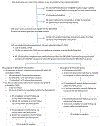Motivational interviewing and culture for urban Native American youth (MICUNAY): A randomized controlled trial
- PMID: 32087841
- PMCID: PMC7477923
- DOI: 10.1016/j.jsat.2019.12.011
Motivational interviewing and culture for urban Native American youth (MICUNAY): A randomized controlled trial
Abstract
To date, few programs that integrate traditional practices with evidence-based practices have been developed, implemented, and evaluated with urban American Indians/Alaska Natives (AI/ANs) using a strong research design. The current study recruited urban AI/AN teens across northern, central, and southern California during 2014-2017 to participate in a randomized controlled trial testing two cultural interventions that addressed alcohol and other drug (AOD) use. Adolescents were 14-18 years old (inclusive), and either verbally self-identified as AI/AN or were identified as AI/AN by a parent or community member. We tested the added benefit of MICUNAY (Motivational Interviewing and Culture for Urban Native American Youth) to a CWG (Community Wellness Gathering). MICUNAY was a group intervention with three workshops that integrated traditional practices with motivational interviewing. CWGs were cultural events held monthly in each city. AI/AN urban adolescents (N = 185) completed a baseline survey, were randomized to MICUNAY + CWG or CWG only, and then completed a three- and six-month follow-up. We compared outcomes on AOD use, spirituality, and cultural identification. Overall, AOD use remained stable over the course of the study, and we did not find significant differences between these two groups over time. It may be that connecting urban AI/AN adolescents to culturally centered activities and resources is protective, which has been shown in other work with this population. Given that little work has been conducted in this area, longer term studies of AOD interventions with urban AI/AN youth throughout the U.S. are suggested to test the potential benefits of culturally centered interventions.
Keywords: Adolescents; American Indian/Alaska Native; Culture; Intervention; Motivational interviewing; Traditional practices.
Copyright © 2020 Elsevier Inc. All rights reserved.
Figures


References
-
- Antonio MCK, & Chung-Do JJ (2015). Systematic review of interventions focusing on indigenous adolescent mental health and substance use. American Indian and Alaska Native Mental Health Research, 22(3), 36–56. - PubMed
-
- Botvin GJ, Baker E, Dusenbury L, Tortu S, & Botvin EM (1990). Preventing adolescent drug abuse through a multimodal cognitive-behavioral approach: Results of a three year study. Journal of Consulting and Clinical Psychology, 58, 437–446. - PubMed
-
- Brave Heart MYH, & DeBruyn LM (1998). The American Indian holocaust: Healing historical unresolved grief. American Indian and Alaska Native Mental Health Research, 8(2), 56–78. - PubMed

